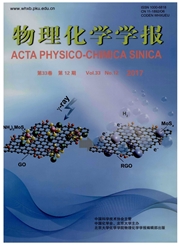

 中文摘要:
中文摘要:
随着生物柴油产业的快速发展,作为副产物的甘油大量过剩,因而有效利用甘油既能促进生物柴油产业的良性发展,又能节约大量石油资源。通过甘油催化氢解的方式来制备高附加值化学品丙二醇、乙二醇和丙醇等是甘油转化研究中最有潜在应用价值的路径之一,甘油氢解反应易于实现连续化生产,且目标产物附加值高、选择性高,因而具有良好的经济效益。本文首先简要介绍了甘油化学,深入探讨了甘油的氢解机理,然后重点综述了甘油氢解制备1,2-丙二醇、1,3-丙二醇、乙二醇和丙醇高效催化剂的研究进展,并对甘油氢解未来的研究方向和发展趋势作了进一步展望。
 英文摘要:
英文摘要:
With the rapid growth of the biodiesel industry, huge amounts of glycerol have been produced as a byproduct. Thus, it is highly desirable to convert low-cost glycerol into highly valuable chemicals, which can both expedite the development of the biodiesel process and save abundant petroleum resources. In this context, one of the most promising approaches is the catalytic hydrogenolysis of glycerol to synthesize 1,2- propanediol (1,2-PDO), 1,3-propanediol (1,3-PDO), ethylene glycol (EG), and propanols, because these target products have higher selectivity, economic value and potential for industrial application. In this paper, glycerol chemistry will be briefly introduced and then the reaction mechanisms, including dehydration-hydrogenation, dehydrogenation-dehydration-hydrogenation, direct hydrogenolysis, and ionic hydrogenation, will be discussed because of their importance for understanding the catalytic chemistry. Subsequently, the catalytic applications of glycerol hydrogenolysis to obtain 1,2-PDO, 1,3-PDO, EG, and propanols will be reviewed in detail based on various catalysts. In the end, we will provide a short summary and an outlook on the future prospects for glycerol hydrogenolysis.
 同期刊论文项目
同期刊论文项目
 同项目期刊论文
同项目期刊论文
 期刊信息
期刊信息
